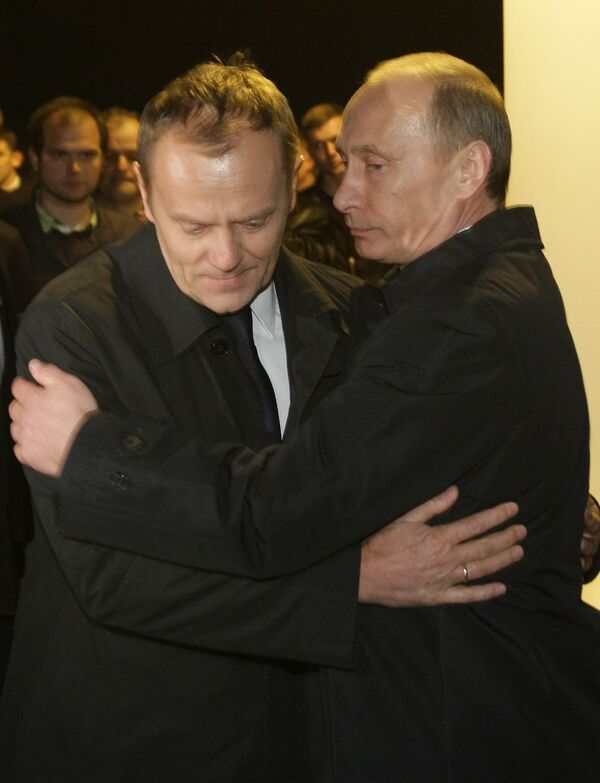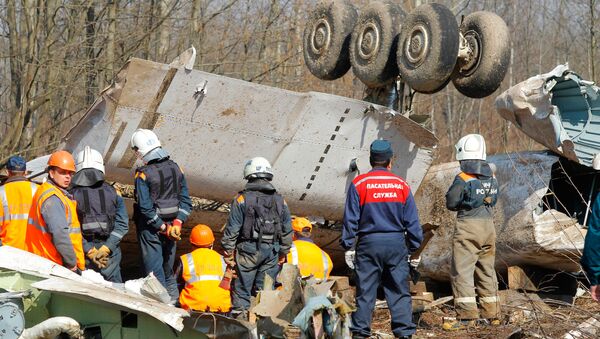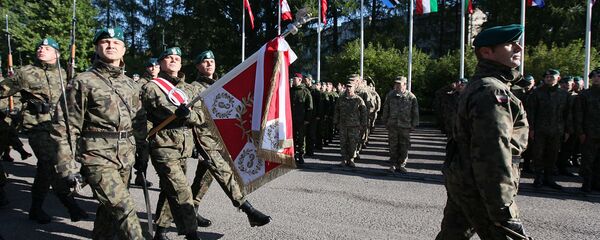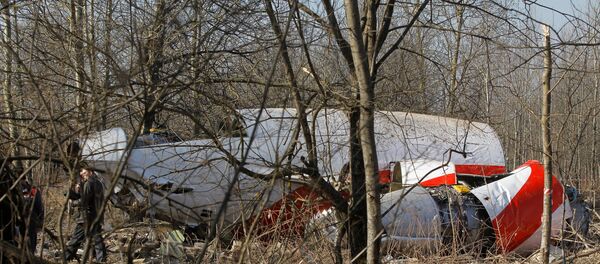On April 10, 2010, the Polish presidential Tu-154M, on its way to Russia to mark the 70th anniversary of the Katyn massacre, the mass execution of Polish officers by the Soviet NKVD during WWII, crashed outside Smolensk, western Russia, killing all 96 passengers and crew onboard. Investigators concluded that pilot error and poor weather conditions were to blame for the disaster.
In the years since, conspiracy theories have been floated in Poland among political forces hostile to Russia that the accident was really a secret plot by Moscow to assassinate Polish leaders. For years, these claims were brushed off by Warsaw, whose own inquiries found no evidence to back up such claims.
Last week, Polish Defense Minister Antoni Macierewicz accused Tusk of moral, political and legal responsibility for the disaster.
The absurdity of the new crash investigation is obvious from the kinds of theories it has come up with. Among them is the claim, considered as one of the most likely causes of the crash, that thermobaric explosives went off inside the plane. Leading Polish and Russian experts who led the 2010 investigation have baulked at the suggestion that an explosion brought down the aircraft. Former head of the Polish commission Maciej Lasek stressed that after having studied dozens of samples, Polish specialists had "unambiguously ruled out" that an explosion took place.
An exasperated Russian Foreign Ministry has said that Warsaw's latest claims were absurd, and could not be taken seriously. Other officials, including from the Russian Interstate Aviation Committee, emphasized that not only were the new accusations baseless, but that Warsaw was deliberately ignoring or simply suppressing evidence which doesn't match their theories.
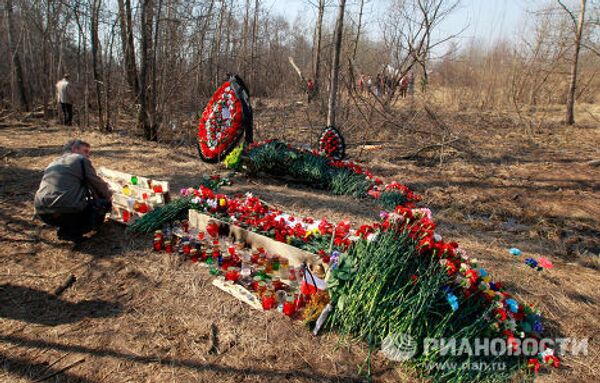
Warsaw's new 'investigation' has involved the mass exhumation of the bodies of the crash victims, including President Kaczynski himself. Last week, Polish prosecutors revealed that they had discovered the remains of the genetic material of two other people in Kaczynski's coffin alongside the president. Authorities immediately pointed the finger at Russian forensic investigators and medics, accusing them of incompetence or even of having deliberately desecrated the remains.
Speaking to Russia's Izvestia newspaper, Russian Ambassador to Poland Sergei Andreev said that the claims that Russian investigators would deliberately desecrate bodies were "absolutely unacceptable." Russia, he said, handed over the remains to the Polish side with the understanding that Poland would conduct further examinations of their own before burial. The ambassador emphasized that the Russian experts were forced to work "in conditions of an acute lack of time," and that they did "everything that was possible" under the circumstances.
The newspaper got its hands on the protocol for the handover of the bodies, signed by then-Russian Minister of Health Tatyana Golikova, Russian Deputy Foreign Minister Vladimir Titov, Polish Deputy Interior Minister Piotr Stachanczyk, and Deputy Foreign Minister Jacek Najder.
"It's enough to glance at this document to immediately understand the absurdity of the claims [presently being made] by the Polish side," Izvestia noted. "The document states that 'during the investigation to identify the remains, no grievances or observations were made toward the Russian side regarding the measures which were undertaken or their results.'"
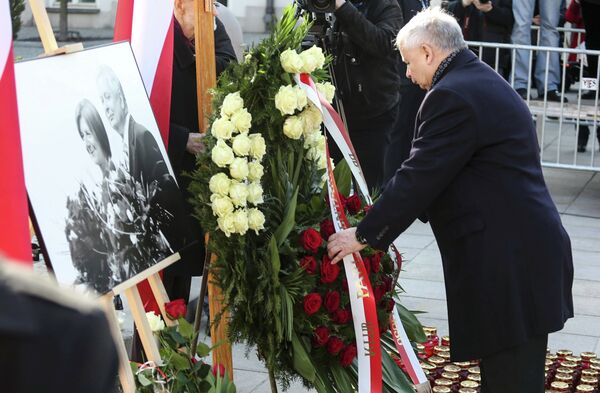
"In other words, the protocol clarifies a very important point in this whole story: When the tragedy outside Smolensk occurred, and the necessary measures were subsequently taken and the bodies handed over to Poland, the Polish side had no complaints or questions toward Russia." Only now, years later, when it has become politically convenient, have they appeared.
Getting its hands on a previously never-before published document – Aviacor's statement of delivery and acceptance with the Polish side, Izvestia found "one small but important detail: the signature and stamp of the Polish recipients. According to the document, dated 21.12.2009, the Polish firm was satisfied with the quality of Aviacor's service, and took delivery of the plane without complaints, having testing it and carried out all the necessary inspections." In other words, documentary evidence shows conclusively that the new commission's claims belong in the realm of fantasy, rather than reality.
Even Warsaw's US allies decided to stay as far away as they could from the new crash investigation. To Warsaw's disappointment, Washington made clear that although the crash was a terrible tragedy, they want nothing to do with the new efforts to blame Moscow for the disaster. Speaking to the Polish Press Agency recently, US Ambassador to Poland Paul Jones said that the US had already passed on all the information they had for the original investigation, and that the US side didn't see anything more that could be done.
Ultimately, speaking to Izvestia about the continuing evolution of Warsaw's crash investigation, the Russian Foreign Ministry expressed its hopes that "the authors of these insinuations would return to sanity," and realize the futility of attempting to blame Russia for a catastrophe that was "perceived in our country as a real tragedy."
